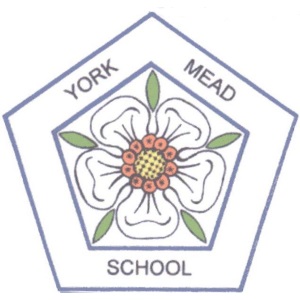Mathematics is a highly inter-connected subject that is essential to everyday life, vital for financial literacy and necessary in most forms of employment. We know from ‘The Smith Review’ [1] that children who become mathematically fluent adults are likely to earn higher wages and have more secure employment. Therefore, at Yorkmead, we are passionate about developing children’s confidence and ability in mathematics, whilst also fostering a love and enthusiasm for the subject, to drive our pupils' long term social mobility.
To achieve this, we deliver the statutory National Curriculum for mathematics which aims to develop children’s fluency in the fundamentals of mathematics whilst also ensuring that children are able to reason, make generalisations, justify their thinking and solve problems.
In the Early Years Foundation Stage, children explore numbers daily through practical activities using manipulatives, which are focused around developing a deep understanding of numbers up to ten. During purposeful play, children are given opportunities to find patterns, make connections and develop spatial reasoning, providing them with the foundations needed to become successful mathematicians in Key Stage One.
In Key Stages One and Two, we deliver the National Curriculum through the ‘Maths No Problem’ syllabus – a textbook based programme of study influenced by the Singapore Mastery approach to mathematics which is founded on the learning theories of Piaget, Dienes, Bruner, Skemp and Vygotsky. By following ‘Maths No Problem’, themes are revisited and built upon each year, reinforcing previous knowledge and allowing time for children to deepen their understanding.
Throughout their time at Yorkmead, children will learn number, measurement, geometry and statistics, with the addition of ratio, proportion and algebra in Year Six.
Our daily mathematics lessons place emphasis on discussion, collaboration and exploration, which are integral to progressing children’s mathematical oracy and vocabulary development. Each day, children are encouraged to use concrete and/or pictorial resources to help contextualise their understanding of a problem, before moving on to abstract problems. Children are also encouraged to explore, record and articulate their thinking through regular journaling activities. We strongly believe in the importance of inclusion and therefore during mathematics lessons the majority of children work towards the same goal, although, where necessary, additional support is provided to help achieve this.
We know that fluency with number facts provides the foundations for a successful Key Stage Two in mathematics. Therefore, we provide each pupil in Years Two, Three and Four access to a tablet and the ‘Times Table Rockstars’ (TTRS) App. This provision supports and encourages pupils to develop accuracy and speed within their timetables. Children can access TTRS here: https://ttrockstars.com/
Additionally, all pupils have access to Mathletics, which provides children with the opportunity to complete additional independent practice of their learning at home. Mathletics is available here: https://www.mathletics.com/uk/
As mathematics is essential to everyday life, where appropriate, children use their skills and knowledge to apply mathematics to real-life situations in other subject areas: for example, in science, children practise taking accurate measurements, recording data and presenting this in graphs and charts, in computing children use the mathematics of position to control the appearance of images in their programs, in art, children recognise and use patterns in shape whilst in geography, children read and interpret tables of numerical data.
By the time children leave us, they will be confident mathematicians who enjoy mathematics and who are ready to continue developing their knowledge and understanding at secondary school. We see our mathematics curriculum as a vehicle for our children's wider cognitive development and therefore, it will equip them with the foundations needed to be become life-long thinkers, reasoners and problem solvers.
Miss J.Burke (Mathematics Subject Lead)
[1] ‘Report of Professor Sir Adrian Smith’s review of post-16 mathematics’ available at: https://assets.publishing.service.gov.uk/government/uploads/system/uploads/attachment_data/file/630488/AS_review_report.pdf

